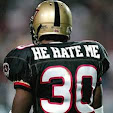Tuesday, February 7, 2017
One word I use frequently,
well really two are hilarity and comical. So forgive me for I am about to
employ their use again but this time it will be in reference to Dodd-Frank. Not the law itself but rather the outrage I
have heard from people regarding President Trump’s desire to review and possibly gut the bill. Trump has just outline his plan to revisit the legislation
introduced by President Obama approaching some seven years ago. In light of
this, I asked several people how they viewed his decision. And the comedy
followed.
The first few people said
straight up that this was a bad idea and that Trump was just messing up
again. They were vehement in their
positions so I probed more asking two questions: (1) can you explain the
Dodd-Frank legislation to me, and (2) have you ever read the legislation? I was
not surprised for as I had anticipated none of the four had ever read it nor
could they explain the law. Why is it
that people get outraged at things they really have no understanding or
knowledge of?
In my own view, Dodd-Frank is
a worthless waste of trees. It basically
amounts to 2300 plus pages of nothing. When President Obama signed Dodd-Frank into
law he told all Americans that it would serve as a stimulus to the U.S.economy. Instead of taking his word for it, I spent a week reading and trying
to understand as much as I could proffer about the law. I read a lot of rules
included in the law, hundreds, so many that I could only conclude some redundancy
and some inherent contradictions.
What was clear was that it would not do one
thing: end the practices of the “too big to fail” banks that brought about the 2008 financial crisis. It did however, with all of the new regulations, grow
the size and cost of government albeit it claimed to streamline the regulatory
processes for Wall Street.
That was then and after the
end of the Obama administration, the Government Accountability Office (GAO) has documented some of my initial concerns. Not only has it added thousands of new
government jobs it also cost in excess of a billion dollars for the law to be
implemented annually. Moreover, the largest U.S. financial institutions are still “too big to fail” and in most cases have grown into even larger than they were prior to Dodd-Frank becoming the law of the land.
In short, small business
lending from banks has dropped dramatically and there are fewer smaller banks across the country, thus creating less competition among these institutions in
the favor of bigger banks compared to smaller community banks. Moreover, since most small business and
start-up happen at the local level, with fewer small community banks, there has
been the consequence of fewer new business startups.
It may end up that Dodd-Frank
could have made the U.S. financial system even more unstable than it was in
2008. Then there is the fact that the legislation did not address any of the
issues prevalent with Fannie Mae and Freddie Mac, which can be considered the
main catalyst for what occurred in 2008. One reason for this could be that the
Obama administration focused on pushing that what led to the financial crisisin 2008 was a lack of oversight and regulation of the financial system.
Although I am no economist, I would disagree with this assertion because there
has always been oversight it was rather that regulators mainly came from the
banks they were supposed to regulate and often either looked the other way when
wrong doing occurred, given a slap on the wrist or in a worse case, gave big
banks special treatment.
All in all, it can be said
wit substantial evidence that Dodd-Frank did not do what it said it would
do. And not to say that I know what
President Trump will do, I can say it does need to be looked at again, in
particular in terms on how it inhibits new business formation and puts the
federal government in bed with these massive financial institutions. I also don’t
like how it plays favoritism with big banks allowing them to borrow money at lower rates than smaller banks. Similarly the manner in which it allowed big
banks to add a banking fee to anything has contributed greatly to the
tightening of purse straps demonstrated by a large body of the U.S. populous.
Before Dodd-Frank more than three out of four banks provided free checking, now
this is a thing of the past and may be why more and more people either do not
want or can no longer afford to have a bank account. But like I started with, if you ask me,
Dodd-Frank is worth less than the paper it was printed on.
Subscribe to:
Post Comments (Atom)
































0 comments:
Post a Comment